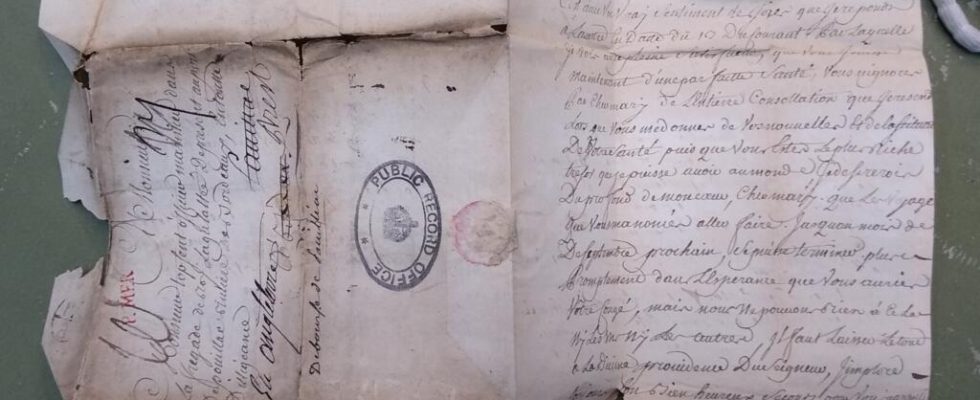This is a very special loot from the Seven Years’ War between France and the United Kingdom: letters sent 265 years ago which never reached their recipients and which were published this Tuesday, November 7 by a professor of history at Cambridge University in the journal The annals. History, Social Sciences.
3 mins
“ I realized I was the first person to read these very personal messages », Confided history professor Renaud Morieux to AFP. For this, he decided to transform this dark chapter of the Seven Years’ War between France and Great Britain into a luminous testimony of ” universal human experiences “.
65 000 French sailors detained by the British
Each letter thus becomes a messenger to vibrate the thoughts of the past in today’s times. A major conflict in European history, the Seven Years’ War took place from 1756 to 1763. It pitted France allied with Austria and Great Britain allied with Prussia. 65,000 French sailors were detained by the British who emerged victorious from this war.
To maintain contact with their loved ones despite despair, those who remained in France sent letters to the sailors engaged in the war. The historian took on the challenge of identifying all the 181 recipients aboard a French frigate captured in 1858 by the British. Part from Bordeaux for Quebec, to force the English blockade, the Galatea was captured in the Atlantic. First shipped to Plymouth, she was then taken to Portsmouth.
Boats followed by letters
The letters sent by their families took the same route, but unfortunately too late, so that none of the recipients was able to read the lines addressed to them.
Like, for example, this testimony of love from Marie Dubosc for her husband Louis Chambrelan, first lieutenant of the frigate: “ I would very well spend the night writing to you (…), your faithful wife for life. » The wife herself died the following year, so it was indeed the historian Renaud Morieux the first reader of these moving lines.
And it was entirely by chance that these letters fell into the hands of the English historian. Originally, the three stacks of letters tied with ribbons were long considered military secrets. But ultimately, the 104 letters were deposited in the British National Archives. This is where the scientist one day wondered what was inside a very ordinary box. Thus, he came across the unique experiences and testimonies of these women, most of them wartime wives, mothers and fiancées. Morieux also undertook genealogical research on sailors and the authors of letters.
“I think more of you than you of me…”
For Renaud Morieux, letters tell the history of the 18th century beyond the stories of aristocrats and philosophers. And they provide a previously unsuspected insight into the role of women in times of war. Behind the faded ink and yellowed paper hide impressions as unique as they are universal of the time. For example, when Marguerite Lemoyne, a Norman mother, criticizes her son Nicolas Quesnel for neglecting her too much: “ I think more of you than you of me… »
Deep feelings that have probably not changed since this war that some even call a “world war”. Indeed, all the great powers of the time were affected by the military and political upheavals and the profoundly modified balance of world powers, notably with the disappearance of the first French colonial empire in North America and India. Even in the age of WhatsApp, these letters written in the 18th century remain the most faithful and current source of this historical period.
Over 100 letters sent to French sailors by their loved ones have finally been read – 265 years later! 📝
The letters were seized by Britain’s Royal Navy during the Seven Years’ War and forgotten about until @RenaudMorieux of @CamHistory discovered them at the @UKNatArchives 👇
— Cambridge University (@Cambridge_Uni) November 7, 2023
(With AFP)
